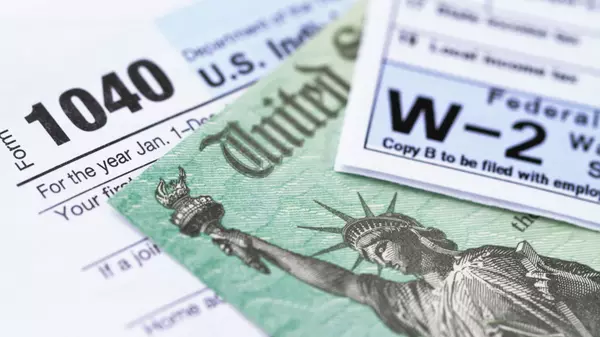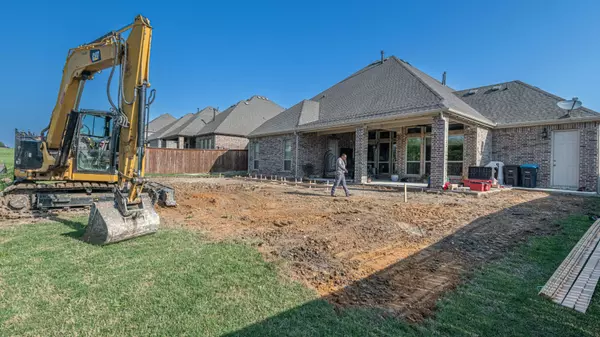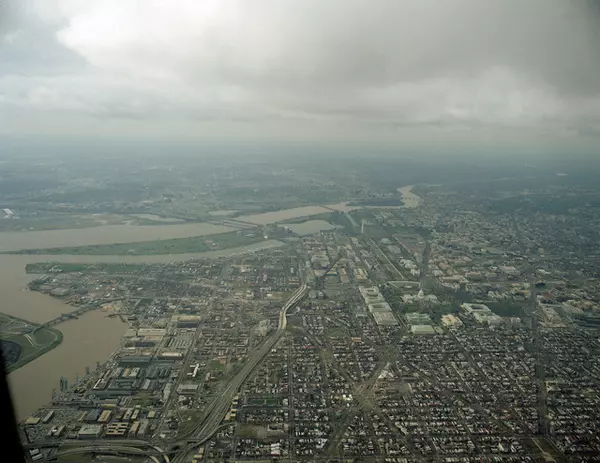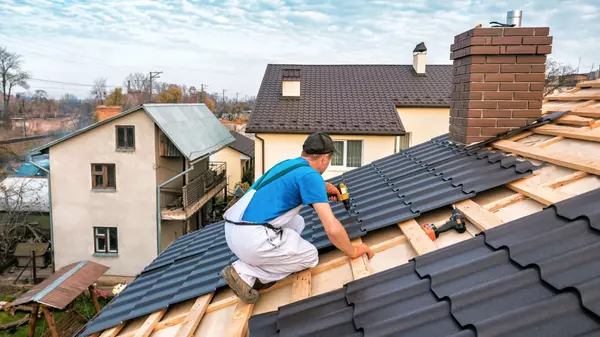How Seasonal Changes Impact the Vancouver, WA Real Estate Market
Discover How Seasonal Changes Impact the Vancouver, WA Real Estate Market—And What It Means for Buyers and Sellers in Every Season
If you’ve ever wondered how seasonal changes impact the Vancouver, WA real estate market, you’re not alone. From spring surges to winter slowdowns, the rhythm of the year has a major influence on buyer behavior, inventory levels, and home prices. Whether you're planning to buy, sell, or simply stay informed, understanding these patterns is key to making smart real estate decisions in Southwest Washington.

Let’s break down how each season shapes the Vancouver housing market—and what it means for your real estate decisions.
Early-Spring Market (January thru February): The Quiet Surge Before the Rush
You might assume the housing market sleeps through winter, but something surprising happens right after the holidays. December 26th is historically the #1 day of the year for people to search for homes online. Why? Simple—folks have just spent time with family, and that inspires big moves. Some want to live closer. Others… maybe a little farther away.
Then comes January 1st, and with it, New Year’s resolutions. One of the most popular? “Let’s buy a new house this year.” This resolution drives a noticeable uptick in buyer activity throughout the first 6 to 8 weeks of the year, even if actual listings remain low.
While spring is traditionally seen as the hottest time to buy or sell, in Vancouver, WA, the real momentum builds quietly starting in January and February, well before most people expect it. The pace then kicks into full gear after Vancouver School District’s spring break in early April, when more families get serious about moving before the end of the school year.
📈 Real Estate Insight:
While inventory remains limited in early Q1, homes that are listed during this time often attract serious buyers with less competition. Properties tend to spend fewer days on market compared to listings that appear during the holiday season, and sellers can benefit from the early-bird demand.
💡 Key Takeaway:
If you're considering buying or selling in 2025, don't wait until spring to make your move. The January–February market offers a unique mix of motivated buyers, limited inventory, and less competition—a combination that can work to your advantage, especially in a dynamic and seasonal market like Vancouver, WA.
Spring Surge (March to June): Listings Come Alive in Vancouver, WA
Spring marks the official kickoff of the homebuying season in Vancouver, Washington—and for good reason. As the rain begins to let up and the days get longer, both buyers and sellers feel more energized to enter the market. Spring is when the Vancouver WA housing market shakes off the slower winter pace and picks up serious momentum.
Longer daylight hours, blooming landscaping, and generally pleasant weather make homes show beautifully. Sellers take advantage of this seasonal curb appeal, and buyers—especially families—start looking so they can close and move before the next school year begins.
🔑 What to Expect in Spring:
-
Increased housing inventory: More homeowners are listing their properties in spring, giving buyers a wider selection to choose from.
-
Faster sales: Homes spend fewer days on market thanks to strong buyer demand.
-
Competitive pricing: Well-presented homes often receive multiple offers, sometimes above asking price.
-
Peak buyer activity: Families hoping to relocate before summer vacation and the start of the school year drive up demand.
📈 Why Spring Matters:
According to national and local trends, homes listed in March, April, and May in the Pacific Northwest tend to:
-
Sell faster than at any other time of the year
-
Command higher prices due to increased competition
-
Spend fewer days on market, making it ideal for sellers who want quick closings
Additionally, the pleasant weather makes it easier to host open houses and for buyers to spend their weekends touring homes. This time of year also brings renewed energy to the real estate market after the holiday slowdown, creating a sense of urgency among buyers who don’t want to miss out.
🏡 Local Insight:
In Vancouver, WA and surrounding areas like Camas, Ridgefield, and Battle Ground, it's common to see a flurry of activity as early as March, with a full surge in April and May. Sellers who list early in the season can benefit from low competition, while buyers who wait too long may face bidding wars and rising prices.
Summer Slowdown (June to August): Lifestyle Takes the Wheel in Vancouver, WA
At first glance, summer might seem like a continuation of the spring real estate surge—but in Vancouver, Washington, the pace typically begins to cool off as the season progresses. While listings and buyer interest remain steady, the real estate market experiences a noticeable dip in urgency. Why? Lifestyle takes over.
With school out, the weather perfect, and Pacific Northwest summers in full swing, many buyers and sellers shift focus away from real estate and toward vacations, outdoor festivals, and holidays like the 4th of July. Instead of house hunting, people are enjoying fireworks on the Columbia River, hitting the hiking trails in the Gorge, or packing for family camping trips.
📌 Lifestyle Factors That Influence the Market:
-
Slower inventory growth: Fewer new listings hit the market as sellers choose to travel or wait until fall.
-
Buyer distraction: Open houses take a backseat to summer events like Ridgefield’s 4th of July celebration, music festivals, BBQs, and lake days.
-
Seller hesitation: Homeowners may delay listing until after Labor Day, when families are back from vacation and more focused.
-
Longer days on market: Homes may sit slightly longer due to reduced buyer urgency, even in otherwise hot neighborhoods like Felida or Cascade Park.
🔥 Real Estate Pro Insight:
The 4th of July in Vancouver WA—paired with vacations and endless summer events—creates a temporary lull in buyer interest. It's not that people aren’t interested in moving... they’re just not prioritizing it right now. For sellers who choose to list during summer, this can actually be a strategic move:
-
Less competition means your listing might get more attention from active buyers
-
But expect a slightly slower sales cycle, and be prepared for fewer offers up front
-
Make sure your home stands out with summer-friendly curb appeal—think flowers, shaded outdoor seating, and clean walkways
🏡 Local Tip:
If you're a buyer hoping to avoid the bidding wars of spring, this is a great window of opportunity. Fewer buyers means more room to negotiate on price or terms, especially if a seller is motivated to move before fall. In neighborhoods like Salmon Creek, Brush Prairie, and even parts of Camas, you might find hidden gems during this quieter season.

Fall Market Reset (September to November): Motivation Returns in Vancouver, WA
As summer fun winds down and school resumes, the Vancouver WA real estate market often experiences a second wave of activity. Families are back from vacation, routines return, and with the holidays just around the corner, both buyers and sellers become more intentional. This is when motivation returns—and for many, it’s a final push to buy or sell a home before the year ends.
Unlike the urgency of spring or the distractions of summer, fall brings a focused energy to the housing market. Buyers who paused during the hotter months re-enter the search with clearer timelines and defined goals. Meanwhile, sellers looking to close before the holiday season are often more open to negotiation, creating win-win situations for both sides.
🏡 Why Fall Is Still Prime Time in Vancouver:
-
Motivated buyers: Many are working within tight timelines, aiming to settle in before winter or the start of the new calendar year.
-
Less inventory = more visibility: With fewer listings on the market, well-prepared homes stand out and attract more serious attention.
-
Smoother, faster closings: Fewer transactions compared to spring means lenders, appraisers, and inspectors are less overwhelmed.
-
Realistic pricing: Sellers tend to price more accurately in the fall, increasing opportunities for buyers to secure fair deals.
🍁 Local Advantage:
Fall in the Pacific Northwest is nothing short of stunning. Vancouver neighborhoods like Fisher’s Landing, Lake Shore, and Hazel Dell look especially beautiful when framed by autumn leaves. Homes show particularly well this time of year thanks to:
-
Crisp air and golden natural light
-
Cozy staging opportunities (think: warm tones, fireplaces, seasonal décor)
-
Easier showings now that vacation schedules have cleared up
📈 Seller’s Tip:
If you’re planning to list in the fall, aim for September or early October. Homes typically sell faster and for better prices earlier in the season, before daylight savings cuts into evening showings and holiday distractions set in.
Winter Slowdown (November thru December): Lower Activity, Serious Buyers in Vancouver WA
Winter brings a noticeable cooldown to the Vancouver WA housing market—and not just in temperature. In November and December, both buyers and sellers tend to put their real estate plans on hold due to the holidays, school breaks, and colder, darker days. This is traditionally the slowest season for home sales, but it’s far from a dead zone.
While fewer homes are listed, the buyers who are active in winter tend to be highly motivated. Whether it’s a relocation for work, a change in family circumstances, or investors looking to close before year-end, winter buyers are ready to make decisions quickly. For sellers, this can mean fewer showings but more serious offers. For buyers, it’s a chance to negotiate better terms in a less competitive environment.
🧣 What to Expect in Vancouver’s Winter Market:
-
Lower inventory: Fewer homes hit the market, which can limit selection but also reduce competition.
-
Longer days on market: Properties often take longer to sell, especially those without strong staging or seasonal curb appeal.
-
Price adjustments: Sellers eager to close before year-end may reduce prices or offer incentives (think rate buydowns or credits for repairs).
-
Serious buyer pool: People house hunting in November and December usually aren’t “just looking”—they’re ready to move.
🏠 Winter Buyer Benefits:
If you’re a buyer looking in places like East Vancouver, Ridgefield, or even across the river in Portland, winter is one of the best times to make a deal. With less competition, you can:
-
Submit offers without facing bidding wars
-
Take more time to complete inspections and negotiate repairs
-
Possibly get more favorable terms on contingencies, price, or closing costs
🔍 Seller’s Strategy:
If you're planning to sell during winter in Clark County, it pays to be strategic:
-
Focus on warmth and lighting during showings—Vancouver winters can be gray, so brighten your home with lighting, cozy décor, and welcoming scents.
-
Be flexible with showings—buyers might want to tour homes early due to limited daylight.
-
Highlight practical features—like newer windows, efficient heating systems, or weatherproof upgrades—to stand out in colder months.
Final Thoughts: How Seasonal Changes Impact the Vancouver, WA Real Estate Market
Every season brings a new rhythm to the housing market, and understanding how seasonal changes impact the Vancouver, WA real estate market helps buyers and sellers make more informed choices. Whether you're gearing up for the spring rush or hoping to find a deal during the winter months, aligning your strategy with the market's seasonal flow can give you a clear advantage.
Need help navigating the seasons? Let’s talk strategy and timing—because when it comes to real estate, knowing the rhythm of the market is half the battle.
📥 Stay in the Know!
Sign up for my monthly newsletter to receive expert advice, important local updates, and insider knowledge on the best ways to thrive in this unique region. Whether you're buying, selling, or simply curious about life in the Pacific Northwest, I've got you covered.
👉 Join my newsletter today and never miss a beat! Just enter your email below and get exclusive access to all things Southwest Washington. Let’s stay connected!
Frequently Asked Questions
Are real estate prices dropping in Vancouver?
Prices in Vancouver, WA have stabilized in some areas but are not significantly dropping overall. While demand has cooled slightly from peak levels, low inventory continues to support pricing. Local market trends vary by neighborhood and property type.
Do house prices change with seasons?
Yes, home prices tend to fluctuate seasonally. Spring and early summer usually bring higher prices due to increased buyer demand. Fall and winter often see fewer buyers and slightly lower prices.
What are the slowest months for real estate?
November through January are typically the slowest real estate months. Holidays, weather, and school calendars all contribute to reduced activity. However, motivated buyers and sellers can still benefit from less competition.
How is climate change affecting real estate?
Climate change is influencing home values based on risk exposure like wildfires, flooding, and extreme weather. Homes in safer zones are seeing increased demand and pricing. Buyers are also factoring in insurance costs and long-term climate resilience.
Is Vancouver in a housing crisis?
Vancouver, WA is facing high demand and low inventory, which has led to affordability challenges for many buyers. While not a crisis on the scale of larger metro areas, housing access remains a concern. Local leaders are focusing on solutions like zoning reform and more housing options.
Is Vancouver overpriced?
Vancouver homes may feel overpriced due to rising costs and limited inventory. However, it's still more affordable than neighboring Portland for many buyers. Pricing reflects demand and the area’s growing appeal.
What season are houses cheapest?
Winter is generally when houses are the cheapest. Fewer buyers and slower activity give more negotiating power to those still in the market. Prices can dip slightly compared to peak spring or summer months.
Are houses cheaper in summer or winter?
Typically, homes are cheaper in winter than summer. Summer brings more listings but also more competition, which drives prices up. In contrast, winter offers fewer listings but better deals.
What time of year do home prices go down?
Prices often dip in late fall and winter, especially from October to February. This is when fewer people are buying, and sellers may be more flexible. It's a good time for bargain-minded buyers to enter the market.
Should I sell my house now or wait until 2025?
Selling now may yield strong results due to continued buyer interest and low inventory. However, if interest rates drop in 2025, more buyers could enter the market, potentially increasing competition. Timing depends on your personal goals and current market conditions in your area.
Categories
Recent Posts










GET MORE INFORMATION

Cassandra Marks
Realtor, Licensed in OR & WA | License ID: 201225764
Realtor, Licensed in OR & WA License ID: 201225764
